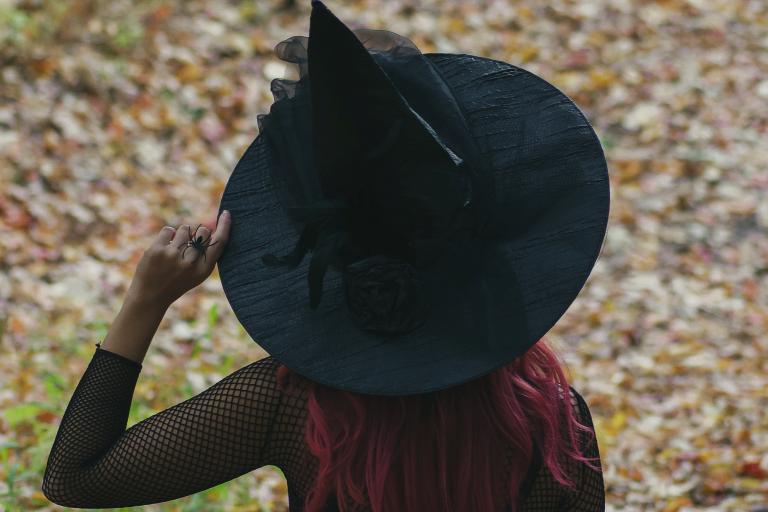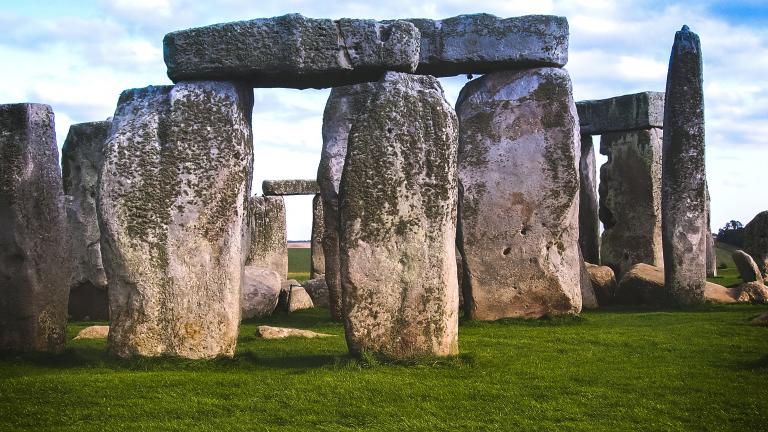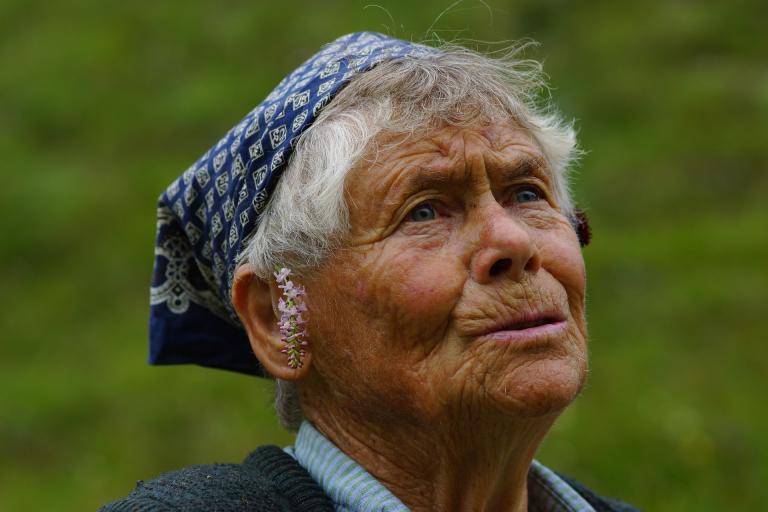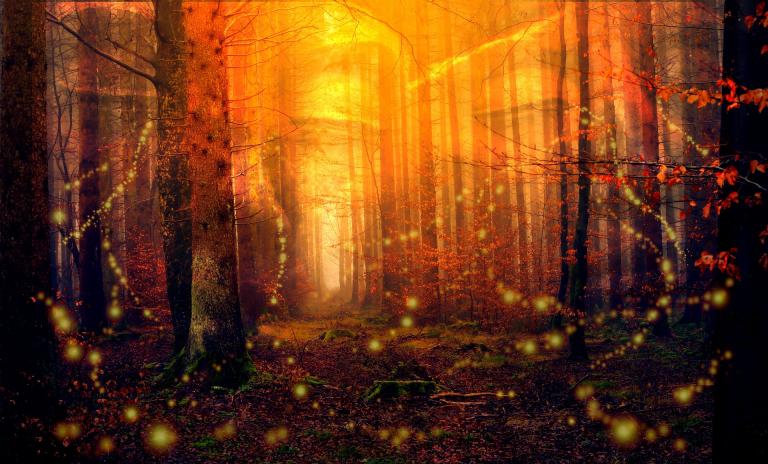Identity is an often tricky thing and something which shifts and changes during our lives, but paradoxically helps us to define who we are within ourselves and our communities. Across paganism there are a multitude of titles and terms we see applied by people and to people and these labels can both clarify and confuse our understanding of each other.
Sometimes, though, there can be a lack of real thought given to why a particular term is adopted; people simply accept what is popular or something that on the surface seems applicable. As with most things I think it’s valuable to dig into the idea of titles and terms and really give some thought about what we choose and why.

Why Labels Have Value
I often see the argument – and not just with paganism – that labels have gotten too numerous and complicated and people should just be what they are without needing a word for it. But language exists to help us understand each other and I think that’s an important truth when we are looking at personal labels.
What we call ourselves and how our community understands us shapes our own sense of self and also helps others quickly grasp details about us. This means that the labels we use are important not only to our sense of self but to how our wider community will relate to us. If you don’t personally choose to use a label for yourself that is of course fine but for those who do it’s important to understand the deeper power of what we call ourselves. The labels we use are a quick way to tell other people something important about us.
Taking on a title or label is taking on everything associated with that word, for good and bad. The word witch is a powerful example of a word with a negative connotation that was taken on by people and shifted into something less malignant and more potentially positive. Like the word queer, calling oneself a witch while understanding the scope of the word’s history and meanings becomes an act of empowerment and reclamation.

Avoiding Appropriative Terms
Having said all that, I do think that the labels we choose for ourselves need to be thought out and considered carefully. Just because a term exists out there doesn’t mean that it’s necessarily open for anyone to claim, and sometimes laying claim to a term that is ill-fitting can cause real problems.
Whether we like to admit it or not – and plenty of people seem averse to acknowledging it – Western paganism has a big problem with cultural appropriation. In the context of this article we can see it in the way that people tend to latch onto titles and terms from specific cultures, including some of the Celtic language cultures, and then use those terms and titles without any real understanding of their context or meanings beyond the simplest translations. Shaman is one that is often discussed these days and hotly debated, for example, but I have also seen examples from Irish culture like ollamh and bean feasa. In most cases the foreign term seems to be used largely to give a greater air of mystery than the English equivalent would, despite the term being used out of context and stripped of its deeper meanings.
This is also a large problem when people take on a term from a particular tradition or group that requires specific training or initiations. Quite frankly you can’t just declare yourself something if you aren’t part of that tradition or group and if you don’t have the required training and initiation. Doing so is a really bad look on anyone.

Changing Terms
As with everything in life the idea of titles and terms for ourselves is fluid and ever changing. I have used terms for myself at various points that I stopped using or stopped emphasizing along the way, and my understanding of the words I do use has evolved and shifted over the last 30 years. I try to periodically reflect on these things so that I don’t fall into a stagnant pattern of simply accepting a word for its surface value or letting something describe me which is outmoded or outgrown. It can be frightening to let go of a term that you have used for yourself for many years but it’s also freeing and empowering when that term has become a prison instead of a description.
I used to call myself a Druid, but after discussions with a friend in Ireland and reading Hutton’s Blood and Mistletoe I began to feel uncomfortable using that label. It has some very strong and particular cultural associations and a history that is both opaque and more recently full of misuse. For myself I decided that I wasn’t comfortable using a term that had been co-opted by people outside the original cultures and redefined in sometimes radical ways. This involved a lot of soul searching and a lot of reflection on where I felt as an Irish-American that I fit into some wider cultural currents. I had self-identified this way for many years and letting go of that simple word was a very difficult thing to do, but in the end it felt like the right thing to do. It wasn’t a term that I felt suited who I was or who I wanted to be.

Self Identification Versus Community
Another aspect that I want to touch on here is the difference between how we might identify ourselves and how our community might identify us, in relation to some specific terms. I see a few floating around that people are applying to themselves or are offering to teach others which touch on appropriation largely I think because they are culturally specific terms and ones that people don’t realize wouldn’t necessarily be self-applied. Bean feasa [wise woman] is one example; a person wouldn’t, as far as I’m aware, give themselves this label and in fact there’s a strong idea that to do so (especially as a young person) makes you seem like you are putting on airs.
Rather, Bean feasa is something that you might be acknowledged as or called within your community because you fit the group’s definition of the term. Another one that I see floating around sometimes is fairy doctor and, while I suppose there is some argument that like ‘cunningman’ this may be a term that people who were in such businesses would take on, I tend to think this is better as something given by the community rather than applied to one’s self. This is simply because the term carries with it the inherent idea that a person is capable of helping others with magical and fairy related problems and this is a job that is much, much more difficult than many people understand. In other words, this isn’t self identification so much as it’s advertising a skill set and you better have the skills to back it up. Which is why I think it’s better as something the community decides you are rather than something you decide to call yourself.

How Do I Label Myself?
In my personal practice I consider myself a Bentuathaíd (a kind of witch) and Benechlach sidhe (fairy messenger). These are obviously Irish-specific terms (old/middle Irish to be exact) and I have my personal reasons for using them even though I understand most people have no idea what the words mean or their contexts. In this case it doesn’t matter because these are highly personal and inform my sense of self not my community connection.
Publicly I use the term witch, which is a bit of a catch-all these days but accurately covers who I am and what I do in the broadest sense. More specifically I use the term ‘fairy witch’ but because there are so many groups and traditions that also call themselves some version of fairy witchcraft that isn’t necessarily helpful; in fact I have found it can cause even more confusion.
Some people in my various communities have called me a fairy doctor but I don’t label myself that way for the reasons outlined above*, although I do help my community and others with any such issues I can help with. So for the most part I simply go with witch, although that is only the top layer of my sense of self here. Because another thing I realized in contemplating these topics is that identity is layered and it’s alright to keep some aspects personal and others public.
Conclusion
I’m not telling anyone how to label themselves or what is or isn’t right in that vein. While there is a community aspect to titles, and that is important, I believe that much of this subject is deeply personal and ultimately up to the individual to accept or reject. But I do think that what we call ourselves shapes how we understand ourselves and that it’s important to choose these terms carefully, just as it’s important to weigh and measure the labels our communities choose for us. These labels allow us to define ourselves but they also act to define us, both describing what is and shaping what will be.
Choose carefully.
*I suppose that does open up the related question of how many people have to give you a community-based label before you might be comfortable using it for yourself. Personally I don’t know the answer to that.













